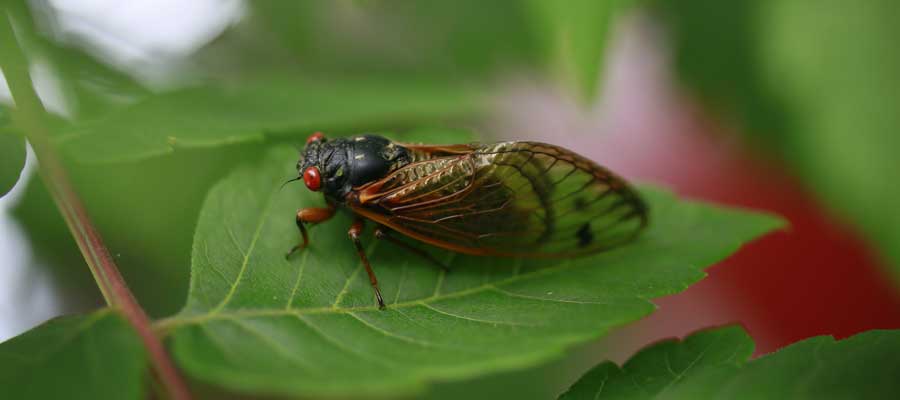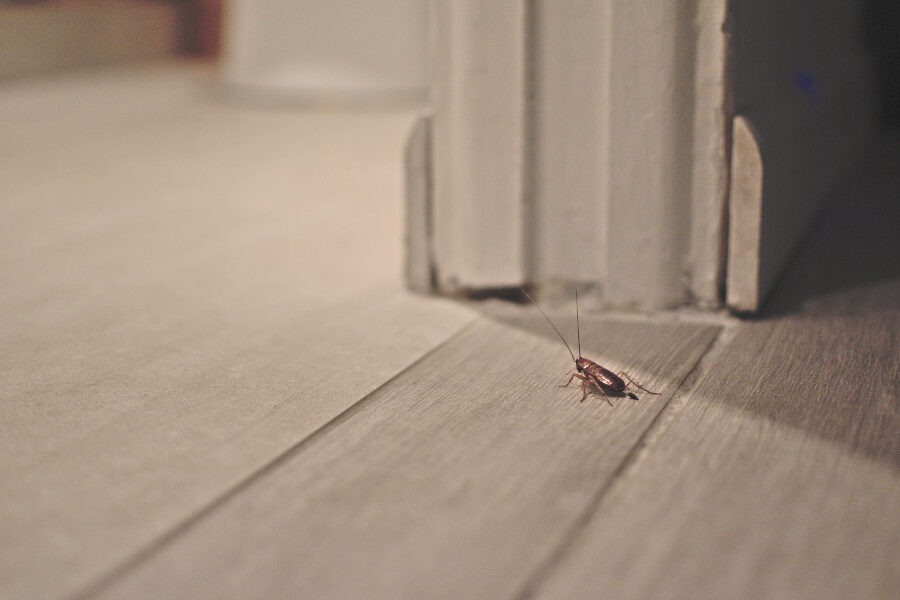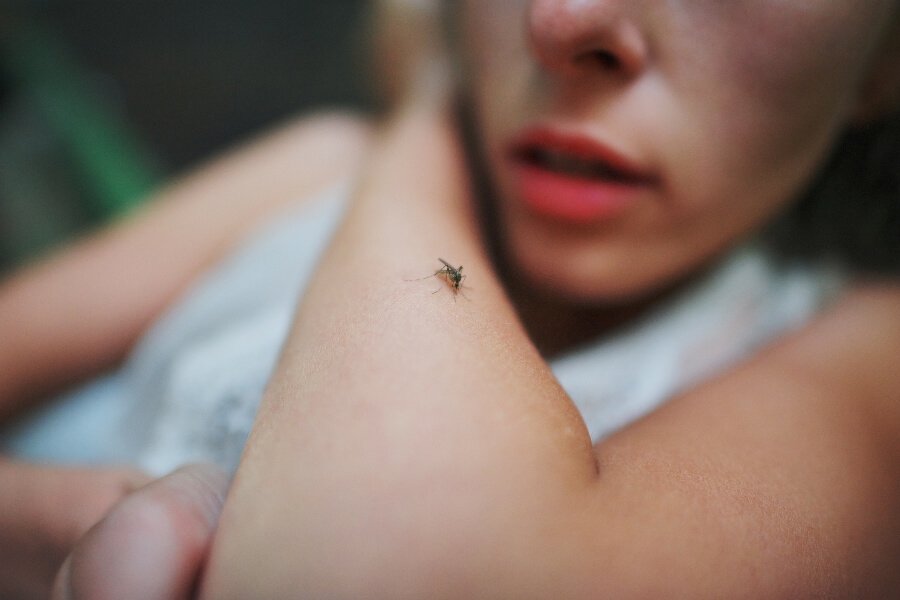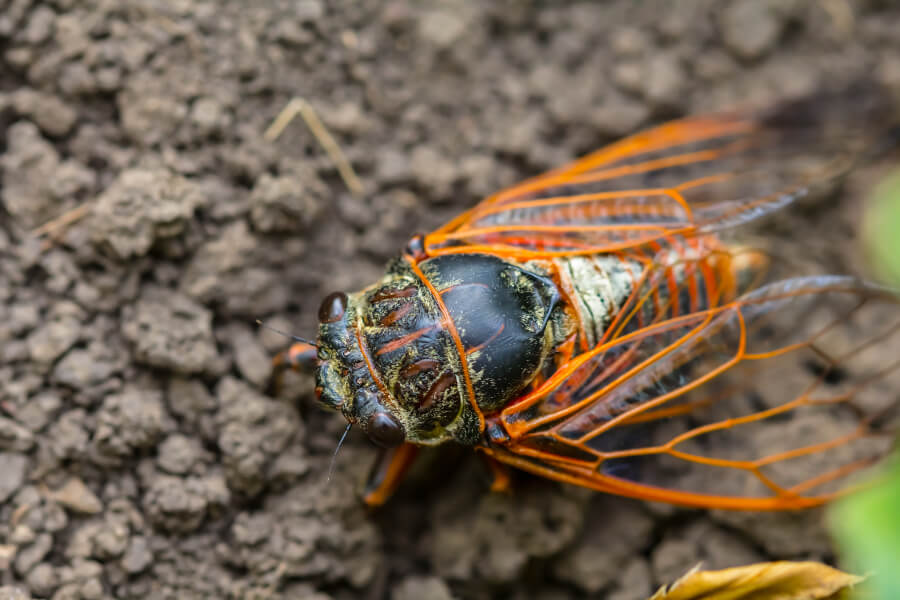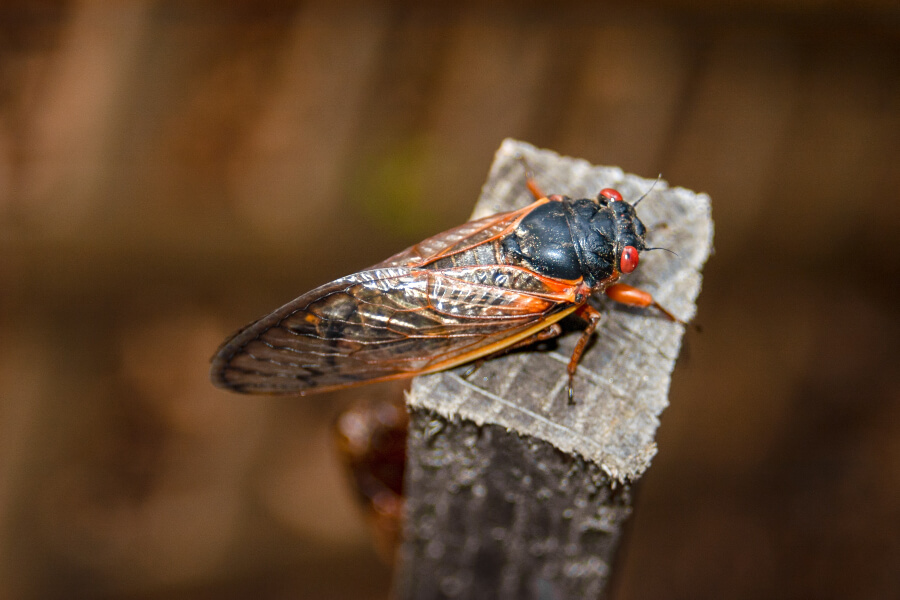This May, we’re in for a rare occurrence here in Murfreesboro TN: the emergence of the Brood-X Cicadas! After being underground for 17 years, the massive swarms of cicadas are about to emerge in late May through early June throughout 14 eastern states. Whether you view this event with delight or disgust, it’s important to prepare by learning about these cicadas. The experts at The Bug Man are here to help. Keep reading to find out everything you should know about the Brood X cicadas!
All About Brood-X Cicadas
This spring and summer, you’re about to hear a lot about the Brood X cicadas. If you’re unfamiliar, this brood emerges just once every 17 years—meaning the last emergence was all the way back in 2004! Unlike your typical cicada, Brood X cicadas are slightly frightening insects that are up to two inches long with a 3-inch wingspan and bright red, beady eyes.
Most people associate cicadas with the extremely loud noise they produce. Male cicadas are the noisy ones, producing nearly 100 decibels of sound. This deafening noise can be heard across long distances and is used to attract female cicadas.
When Do the Brood X Cicadas Emerge in Tennessee?
Scientists predict that the Brood X cicadas will emerge here in Virginia in late May. Here’s what to know about their life cycle during this time:
- When soil temperatures reach about 64 degrees Fahrenheit, the Brood X cicadas will emerge from the ground as nymphs.
- About 6 days later, the nymphs will morph into adult cicadas. This stage will last about 2-4 weeks.
- The adult male cicadas will use their tymbal to attract females. After mating, the females will lay her eggs in twigs on the ground.
- After mating, the adult cicadas will fall to the ground, providing nutrients for the animals and soil. This marks the beginning of the next 17-year period until Brood X cicadas emerge once more.
Are Brood X Cicadas Harmful?
As frightening as this event may be—especially with the massive swarms—Brood X cicadas pose little threat to humans or structures. In fact, cicadas are a feast for all types of animals, even your dogs. Cicadas feed on sap from tree roots, which will only threaten young trees and saplings. Cicadas have no interest in coming indoors, but keep your windows and doors shut during their emergence to keep them outside. Lastly, Brood X cicadas may look terrifying, but they do not bite, sting, or carry diseases.
How to Keep Brood X Cicadas Away
You may not want to deal with these cicadas, but there is little to do to prevent them. Spraying or applying a pesticide would do more harm than good. To stay protected from their emergence, consider covering any young trees and make sure to keep your windows and doors closed securely! To learn more about the Brood X cicadas, the experts at The Bug Man are here to help. Contact us today to learn more.

